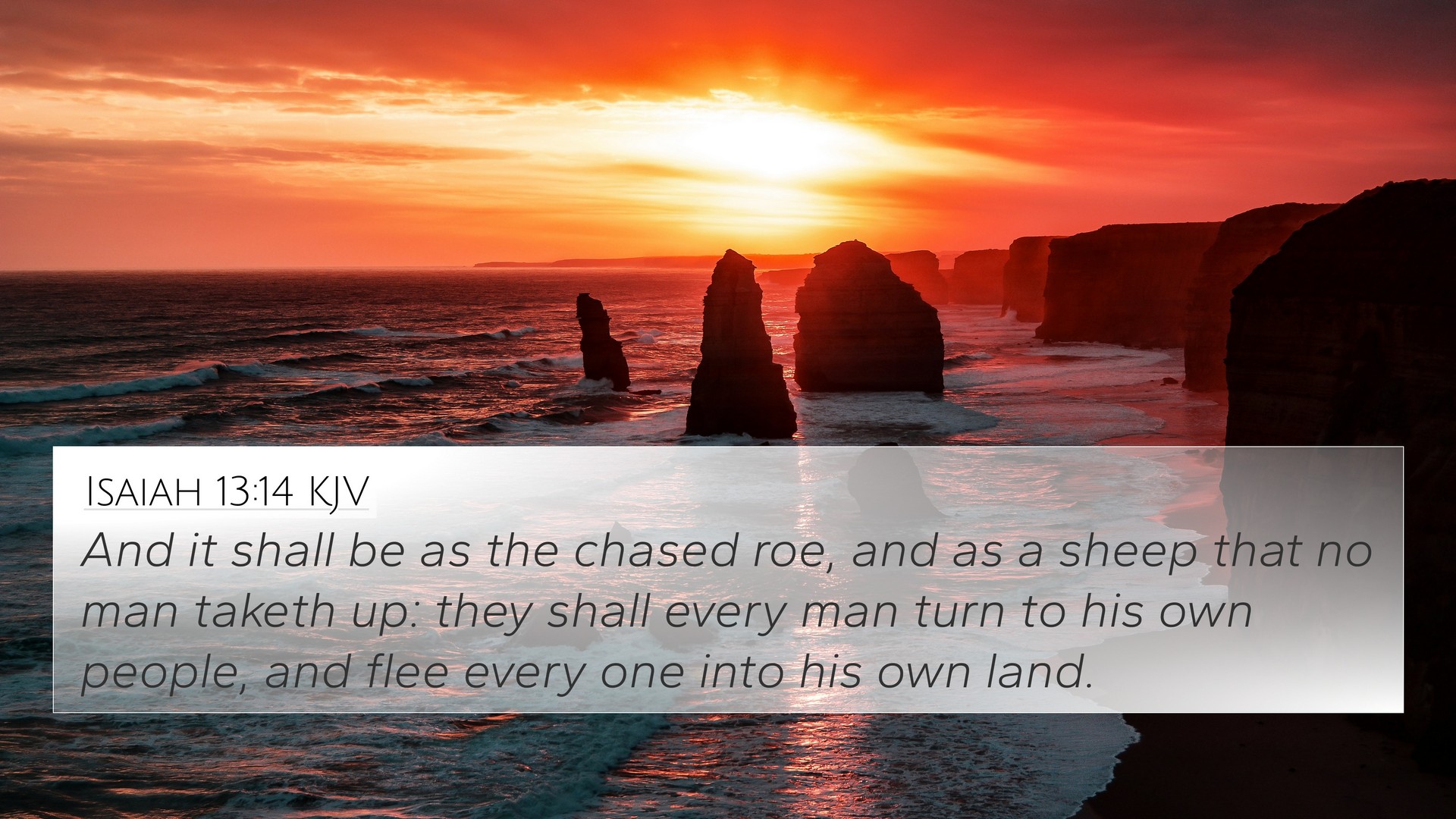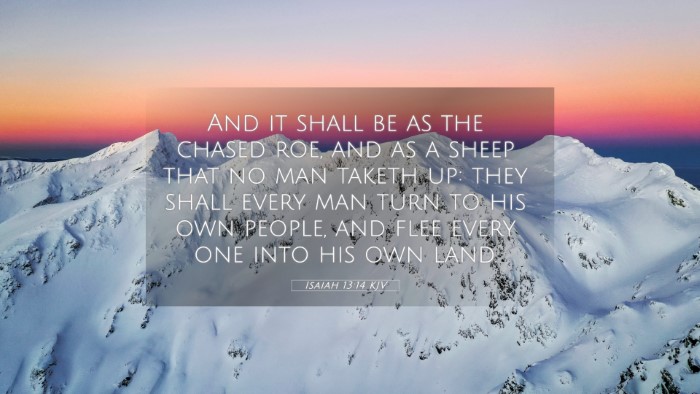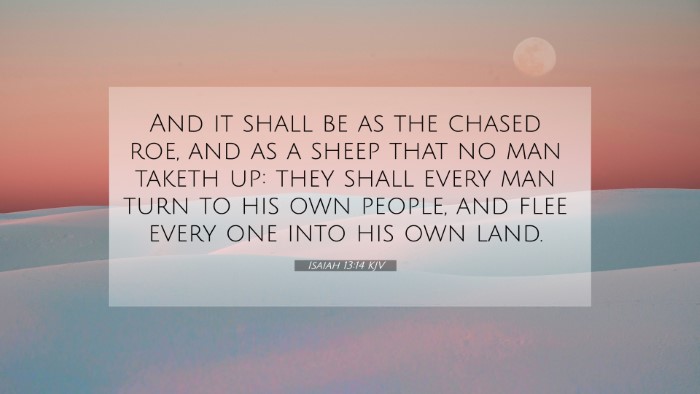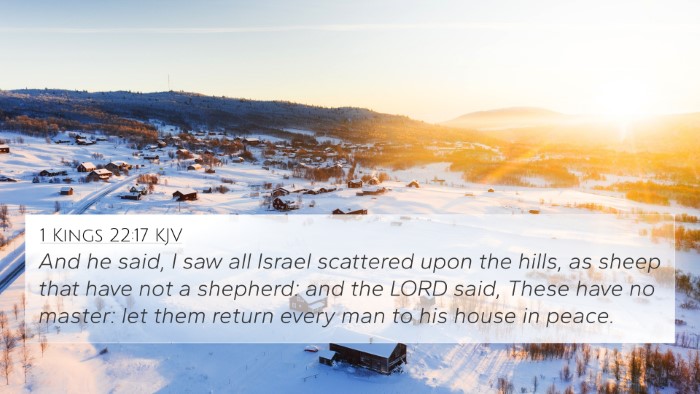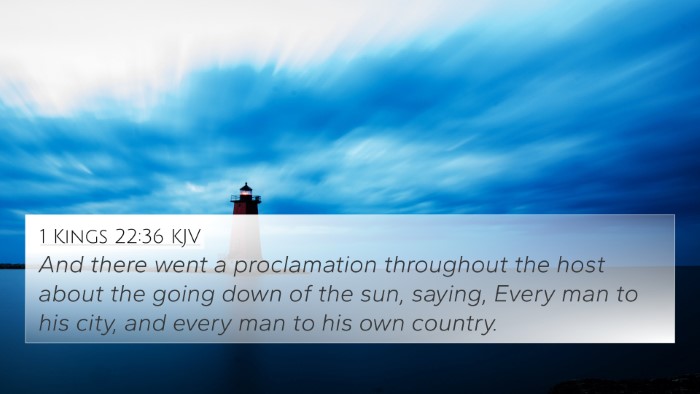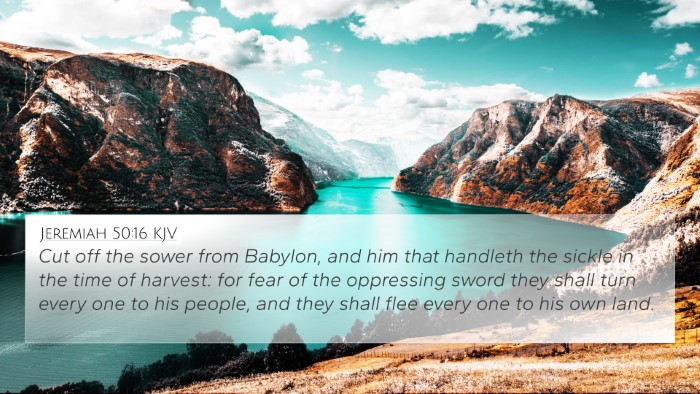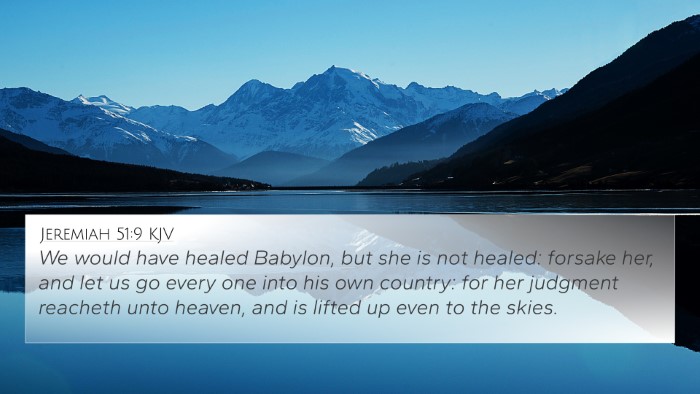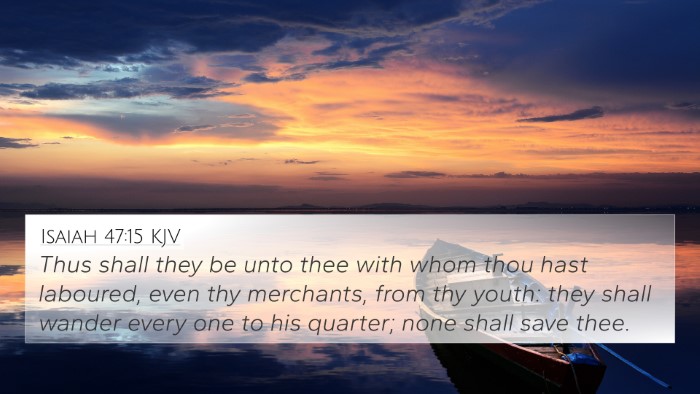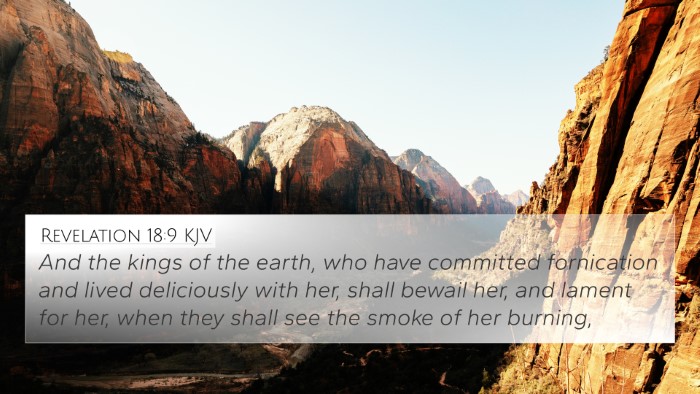Understanding Isaiah 13:14
Summary of Isaiah 13:14: This verse prophesies about the socio-political turmoil that will engulf Babylon, illustrating the widespread fear and chaos that will ensue as people respond to impending judgment.
Verse Context and Analysis
Isaiah 13:14 states:
"And it shall be as the chased roe, and as a sheep that no man taketh up: they shall every man turn to his own people, and flee every one into his own land."
Insights from Commentaries
Matthew Henry's Commentary
Matthew Henry notes that this verse emphasizes the desperate situation where individuals will act out of survival instinct. When God's judgment falls, even the bravest will scatter in fear, showing not only the physical dangers they face but also a profound spiritual desolation. The imagery of being like "a chased roe" suggests helplessness and vulnerability. This reflects how, in times of calamity, people instinctively seek safety and return to their roots.
Albert Barnes' Notes on the Bible
Albert Barnes discusses the implications of fleeing to one's own people. This indicates a breakdown of societal structures, where solidarity in community is disrupted. Barnes highlights that this prophecy serves as a warning of the complete ruin of Babylon, which once stood as a formidable empire, now reduced to chaos and fear. The text elucidates the urgency of returning home, emphasizing the natural human response to calamity.
Adam Clarke's Commentary
Adam Clarke expands on the metaphor of the hunted animals, suggesting it represents the panic and disorder that will prevail during times of divine judgment. He points out that individuals will prioritize personal survival rather than collective security, underscoring the desperate flight of people to their familial and national ties as a source of solace amidst turmoil.
Cross References
This verse has several significant cross-references that highlight similar themes of judgment, fear, and the collapse of social order. Below are suggested Bible verses that complement Isaiah 13:14:
- Jeremiah 50:16 - Discusses the fleeing of people from Babylon.
- Revelation 18:4 - Calls people to come out of Babylon to escape its judgments.
- Hosea 11:10-11 - Speaks of the idea of returning to one’s homeland as a response to God’s call.
- Ezekiel 33:6 - Highlights the responsibility to warn people of impending doom.
- Matthew 24:16-20 - Refers to fleeing to safety during the end times.
- Micah 2:10 - Talks about arising and departing from the land of destruction.
- Psalms 46:1-3 - Affirms God as a refuge amidst chaos.
- Isaiah 24:10-12 - Describes the city of confusion amid judgment.
- Jeremiah 51:6 – Encourages fleeing from the midst of Babylon to avoid its fate.
- Zephaniah 2:1 - An invitation to gather before disaster strikes.
Thematic Connections
Isaiah 13:14 interconnects with grand themes in the Scriptures such as:
- Divine Judgment: The inevitability of God's wrath upon nations, as seen consistently throughout both the Old and New Testaments.
- Human Instinct During Crisis: The urgency depicted when facing danger mirrors biblical narratives of people fleeing from peril.
- Redemption and Return: The recurring motif of returning to one’s roots as an act of hope after judgment, promoting the idea of communal and familial bonds.
Conclusion
In studying Isaiah 13:14, believers can appreciate the connections between biblical texts and their implications on understanding divine judgment and human response. This verse exemplifies the importance of community ties when facing turmoil and encourages drawing strength from one’s heritage amid uncertainty. Tools such as a bible concordance or bible cross-reference guide can be instrumental in uncovering these connections and enhancing one's scriptural insight.
